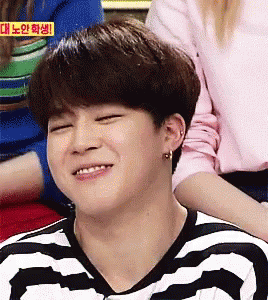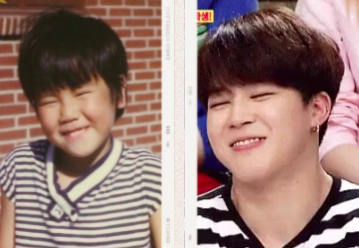Permission to Be Asian: Biden Invites BTS to White House to Discuss Anti-Asian Hate
“Perhaps more difficult than loving another is to love myself. ”
When I learned President Biden invited BTS to come to the U.S. to help raise awareness about anti-Asian violence my initial reaction was, Yay! BTS is coming back to the U.S.! I hope with their platform they are able to raise more awareness. I also couldn’t deny the fact as native Koreans, they can’t really know what it’s like to be Asian in America. But it’s not up to these young men to rid America of Asian hate. To place that burden on their shoulders is not only unfair—it also doesn’t put the spotlight on the ongoing issues of discrimination, prejudice, and racism towards Asians in this country where it needs to be.
Full disclosure: I am ARMY. For anyone living under a rock that means I’m a fan of BTS—the record-breaking South Korean music group that currently dominates the planet. Over the last 18 months, these seven Korean boys (as they many times refer to themselves) have helped this grown woman change the way I see myself, the country where I was born, and Asians in general. BTS is one reason I am able to love myself—but it hasn’t always been that way.
As a Korean adoptee, I have referred to myself as somewhat of a sole minority during my growing up years in Iowa because there were times I didn’t have anyone who looked like me in my family, my church, my school, or even the entire town.* All I wanted to do was fit in. To look like everyone else. To not be made fun of for my “squinty” eyes and my “flat” nose. To not be spoken to in an Asian accent followed by laughter. These acts towards me have been done by both kids AND adults. From the way I was treated to what I saw on television or in the movies—I learned early on that being Asian was not a good thing. The negative narrative towards Asians in America was so ingrained in me that even as an adult I was terrified to have kids for fear I would think they were ugly. I could avoid my reflection in the mirror but how would I feel seeing my face looking back at me in the form of my own children?
As horrific and mind-boggling as the hate crimes against Asian Americans have been over the past couple of years—if we really want to raise awareness we can’t just concentrate on the viral videos and headlines that highlight anti-Asian violence. If there’s going to be a conversation about diversity and inclusion we need to do a deep dive into the prejudice, and racism Asians face in America on a daily basis. Everything from microaggressions to outright bullying.
I used to think my lack of wanting to be associated with anything Asian was a K-adoptee thing until I discovered AAPI rooms on the audio app Clubhouse. It’s been interesting to listen to other Asian Americans tell similar stories of what it was like for them growing up in America and to realize how much overlap we have in our experiences. Once they step outside their homes or Asian American communities they are navigating spaces very similar to mine. A good majority of us grew up embarrassed and ashamed of being Asian, wanting nothing to do with our Asian heritage or culture—because of our experiences and how we are portrayed and treated in America. Sadly, many of those insecurities have prevailed well into adulthood. Ironically, the commonality of those experiences is what has made this K-adoptee feel most connected to the AAPI community.
Portrayal—or lack of portrayal. I can’t put enough emphasis on the role Hollywood has played when it comes to prejudice and discrimination toward Asians. It’s rare we even see ourselves on television or in the movies, and when we do if we’re not the butt of the joke or some tired trope, we’re usually the sidekick and not the lead.
I could not be more grateful to have discovered Korean dramas and BTS during the Covid-19 pandemic. The neverending presence of these positive Asian examples in my life has caused a complete 180 in how I feel about myself. I can truly embrace Sandra Oh’s mantra, “It’s an honor just to be Asian.” Being able to see people who look like me on a daily basis and in a positive light has been nothing short of life-changing. When I watched my first K-drama Crash Landing on You on Netflix in May 2020 I kept wondering, How did I not know my people and where I come from are so beautiful? Truth is, I do know why. I never saw the uplifting images I see on K-dramas and through BTS in American television, movies, and music.
From K-pop to K-beauty, everything Korean seems to be on-trend these days and one of the things Korean content has done for Asian Americans is to help us see ourselves in a way that makes us proud of who we are. While we come to terms with the self-hatred we’ve felt all our lives it’s mixed with a lot of blame, shame, and guilt trying to overcome the internalized racism.
I went through a stage in junior high where I wouldn’t smile in photos because I knew my eyes disappeared—something I was constantly teased for. I recently came upon a gif of BTS member Jimin and couldn’t help but notice the smile in his eyes. His eyes are what makes him so adorable—and they also disappear like mine—when he’s genuinely smiling. It made me go digging through my old photos because it reminded me of a picture when I was five or six that I would normally be ashamed to show. But no more. I don’t need permission to feel proud of being Asian.
K-dramas and K-pop are also changing the way others view Asians. It’s no surprise that non-Asian consumers of Korean content see Asians more positively once they’re exposed to something other than the negative American stereotypes Asians are always trying to overcome. This is why representation matters.
But as much as I love BTS and K-dramas, as an Asian American, I should not have to go to Korea to see a positive representation of people who look like me on television, in film, and in music. But I do—even in 2022. I remember when we discovered BTS my kids literally said to me, “Koreans can sing?” It’s not that we actually thought Koreans couldn’t sing but it certainly makes us wonder why there have never been any prominent Korean American music artists in America given how successful native Korean music artists are in Korea and around the globe—including in the U.S. The same goes for Asian American actors—the roles are few and far between despite how wildly popular K-dramas are. The notion that people won’t watch Asians in lead roles—including romantic ones—has been completely disproven by the overwhelming global success of K-dramas and K-movies.
Asian hate doesn’t always come in the form of violence—microaggressions are part of the discrimination toward Asians in America which in turn fosters hate. Just a few days ago when I was in TJ Maxx buying luggage (for my first trip back to Korea since being adopted) a white woman moved from in front of me in the line to behind me and said, “you’re getting too close to me and it makes me very uncomfortable.” She repeated this multiple times. I was wearing a mask, she was wearing a mask, and a very large suitcase was between us. I didn’t think I was too close to her but I apologized and told her I would take a few steps back so she could return to her place in front of me. That’s when I noticed the two women in front of her who she was standing closer to than she had been to me—despite the fact they were not wearing face masks. She didn’t punch me or even raise her voice—she just told me she was uncomfortable with me (who is Asian) being too close—while her actions showed she was not uncomfortable being closer to two unmasked women (who were not Asian). She may not have been violent towards me but her unjustified fear which can only be attributed to me being Asian is part of the growing discrimination we continue to see since the Covid-19 pandemic began.
It comes down to cause and effect. Violence is the effect of a larger problem. The cause—discrimination against Asians in America—which is so prevalent that sometimes it’s seen as a joke that we just need to not be so sensitive about. The simple fact that nearly every Asian American can tell you they’ve been asked, “where are you from?” or told, “Your English is so good” over and over shows that people assume we don’t belong here—even if we were born in America or if we’ve lived here our entire lives.
We absolutely need to bring more awareness to anti-Asian violence in the U.S. and it doesn’t surprise me that BTS is willing to use their global platform to try to help shine a light on this important issue. But if we truly want to root out the hate—the conversation regarding diversity and inclusion must start with how Asians are perceived, portrayed, and treated on a daily basis in America.
UPDATE AFTER BTS VISIT
“When we see hate and prejudice, it’s meant to make people afraid, and it’s meant to make people feel alone. And therefore without power.”
What Vice President Kamala Harris said to BTS when they were at the White House is exactly the point. The hate and prejudice so many Asian Americans experience on a daily basis makes us feel alone. The overall negative sentiments whether expressed by an individual or as seen portrayed over and over in American television and film have made many in the Asian American community feel ashamed and embarrassed. Those negative stereotypes that permeate America not only affect Asian Americans’ self-esteem they also play a significant role in anti-Asian violence because it fuels hate.
VP Harris was right when she says BTS reminds us we are not alone. They remind us to love ourselves.
BTS has its’ haters too—some even claiming to be ARMY. Hopefully they can block out the noise with their own advice. Jimin—you did well at the White House. You have nothing to apologize for. Thanks for coming to stand up for people like me. 💜
*I am one of nine kids in my family. I have five white siblings, a non-biological brother who is also a Korean adoptee (he is mixed, I am not), as well as two siblings who are bi-racial (Black and white).


